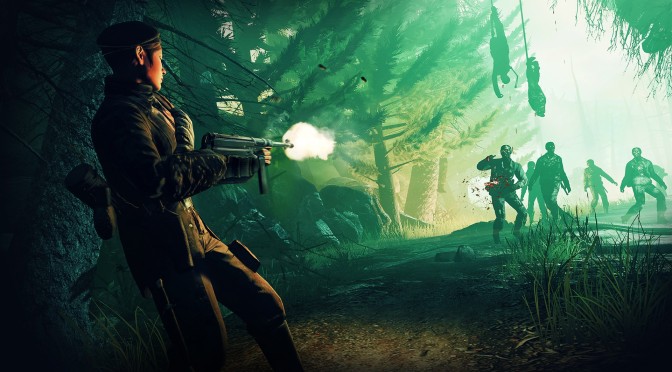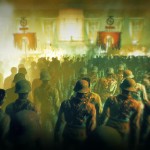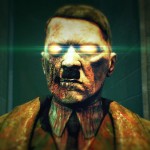Rebellion announced today that Zombie Army Trilogy will be coming to the PC in 2015. Packed with apocalyptic new content and two eye-popping remasters Zombie Army Trilogy also includes the never-seen-before third instalment in the series and a brand new horde mode.
Zombie Army Trilogy will be self-published by Rebellion on all formats and will be available for download via Steam and Rebellion’s gamestore for the PC. A retail version will also be available.
In addition, Rebellion has released the first screenshots from Zombie Army Trilogy that can be viewed below.
Here are the key features of Zombie Army Trilogy:
- Battle through 15 gut-wrenching missions spanning THREE epic campaigns across the irradiated, demon-infested ruins of World War Two Germany.
- Wrestle the occult powers in the campaign and across FIVE terrifying horde maps. Face the horrors alone or fight back-to-back in 2-4 player online co-op.
- Fight as elite sniper, Karl Fairburne or one of EIGHT playable heroes including FOUR new female characters, armed with over 25 iconic weapons and explosive traps.
- Take on legions of Undead Super Soldiers, Armoured Skeletons, Zombie Snipers, Chainsaw Elites, Fire Demons and more, before facing the demonic Hitler himself in a final stand to decide the fate of mankind!
- Bask in the gruesome glow of the infamous X-Ray Kill Cam, and watch in gory detail as rotting flesh and organs are shredded from the inside.
- Experience haunting environments and intense-action, all framed in bloody beautiful 1080p.
Enjoy!

John is the founder and Editor in Chief at DSOGaming. He is a PC gaming fan and highly supports the modding and indie communities. Before creating DSOGaming, John worked on numerous gaming websites. While he is a die-hard PC gamer, his gaming roots can be found on consoles. John loved – and still does – the 16-bit consoles, and considers SNES to be one of the best consoles. Still, the PC platform won him over consoles. That was mainly due to 3DFX and its iconic dedicated 3D accelerator graphics card, Voodoo 2. John has also written a higher degree thesis on the “The Evolution of PC graphics cards.”
Contact: Email










